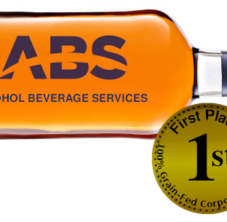In May 1773, the British parliament passed the Tea Act that granted the British East India Company, a government-chartered corporate monopoly with exclusive rights to sell tea in the colonies, to collect tax on that tea at the port. Americans, enraged at a tea tax being imposed without their due representation, reacted by boarding one of the company’s vessels on December 16, 1773, and dumped its tea into Boston Harbor. The British responded by closing Boston Harbor and demanding the city’s residents pay restitution for the damages. On June 11, 1774, a group of Maryland revolutionaries, including Messrs. Wootton, Bowie, and Magruder, gathered in Hugerford’s Tavern, situated at what is now E. Jefferson and S. Washington Streets. The group drafted a resolution of sympathy for the residents of Boston.
Credit: Hungerford Tavern – Site, Carol Stuart Watson, a DC-area illustrator 1950s–1986
We live on streets named Wootton, Bowie, and Magruder. Hungerford’s Tavern is our county’s premier historical landmark against British mercantile oppression. If Montgomery County’s early residents can rise up against a monstrous, worldwide, bankrupt, government-chartered, mercantile, corporate monopoly, then surely today’s residents can do the very little it takes to dismantle the equally bankrupt, government-chartered, but hardly worldwide Alcoholic Beverage Services—an agency that is a direct successor of the British East India Company, inconveniencing you and me the customers, and draining profits from our favorite restaurants and stores.
While it’s tempting to demand that the ABS cease operations today, there is a matter of liabilities that need to be satisfied. One Clean Slate supporter wrote in mentioning the outstanding bonds, employees’ pension fund, and leaseholds. ABS has a large facility at 201 Edison Park, Gaithersburg, inventory, and equipment—all of which can be liquidated for settling the liabilities. Overall, a review of the ABS’s balance sheet shows $150 million in assets, $95 million in liabilities, and after some adjustments a net worth of $45 million. Yes, from a financial perspective we can responsibly shut down the ABS.
Montgomery County residents resent the ABS. Many of our county council members past and present, including reformer Andrew Friedson, have expressed a desire to abolish the ABS, but have yet to act. Why don’t they?
Part of the reason is fear of the unions. The ABS’s employees are unionized under the Municipal And County Government Employees Organization (MCGEO), which represents all county workers. That union has approximately 9,000 members. Let’s assume half of them vote in the Democratic primaries, and they vote according to the union’s endorsement. That’s approximately 4,500 votes that could make the difference between a winner and a loser. In 2022 the difference between Blair and Elrich was 32 votes; the difference between Kate Stewart and Any Ginsburg was 673 votes. In tight races, candidates will pander to anyone who can tip the scale in their favor. Add in possible sympathy pressure from the even more entitled and corporate teachers’ union, and our local politicians are not willing to make the right move. As a result, it’s unlikely we’ll get relief from the county government.
There is recent and persuasive precedent for abolishing the county’s monopoly by working through Annapolis:
- In 2008, the Maryland legislature freed wholesale customers in Dorchester County from buying through the county’s monopoly (Senate Bill 154).
- In 2011, the Maryland legislature similarly freed wholesale customers in Worcester County from buying through the county’s monopoly (Senate Bill 906).
Given this precedent, we can appeal to the state legislature for relief. Citizens who want to apply pressure at the state level can contact the MoCo delegation at MontgomeryCounty.HouseDelegation@mlis.state.md.us.
Until we are free of the ABS, if anyone is going to Frederick County, can you pick me up a bottle of Baileys Irish Cream?



